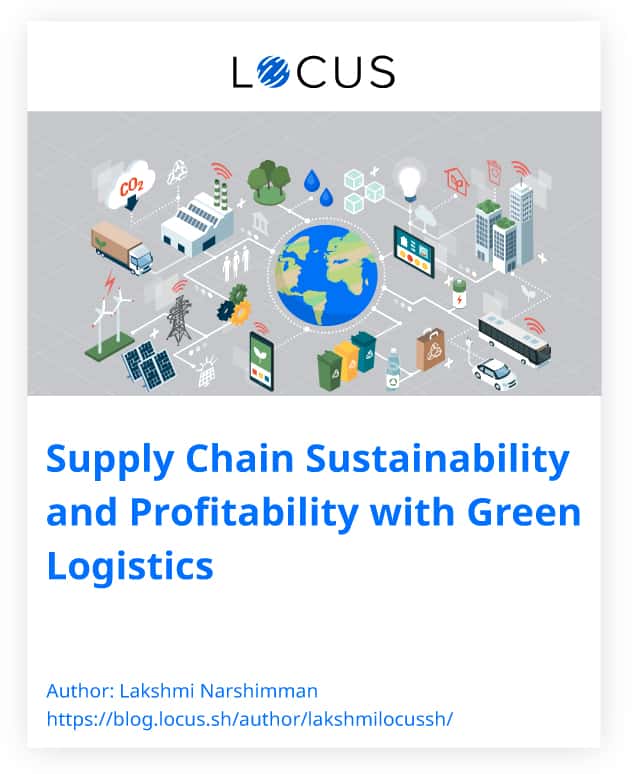Climate change is real

The annual air temperature has warmed 1.5 degrees in the past six decades. 2010 to 2019 was the hottest decade in 140 years.
The past decade was punctuated by a series of deadly, dramatic, devastating events— Hurricanes like Sandy, Maria, and Harvey.
Towards the end of 2019, Australia was engulfed by raging forest fires, a period which is now known as Black Summer for the country.
In early 2020, swarms of deadly desert locusts, accelerated by climate change, entered Uganda after ravaging parts of Kenya and causing food shortages.
Carbon dioxide forms carbonic acid when it dissolves in water and has caused a 34% increase in ocean acidity.
Both ocean-trapped heat and melting ice are contributing to record-breaking sea levels across much of the planet.

Supply chains and corporates contribute majorly to carbon emissions and global warming
Green logistics is good logistics
Green logistics refers to all the initiatives taken by businesses to minimize the overall ecological impact of logistical activities, and reducing carbon footprint and ecological wastage in all activities of forward and reverse flows of products.
Safely
Access
Health
Equity
Society
Sustainable
Logistics
Growth
Efficiency
Employment
Competitiveness
Choice
Economy
Climate Change
Air Quality
Noise
Land Use
Biodiversity Waste
Enivronment
How to implement greener practices in your supply chain?

Ethical material procurement

Sustainable warehouse management

Green packaging methods

Optimal logistics planning

Digital all-mile distribution processes
Supply chains and corporates contribute majorly to carbon emissions and global warming
Network Design Planning
Focuses on optimizing physical flow of goods from one location to another, accurate placement of supply chain nodes, warehouses, and distribution hubs.
Route Optimization
Plans daily dispatches and delivery routes taking into account real-world constraints, resulting in faster deliveries, lesser miles driven, and fuel cost savings.
Supply Chain Visibility
Mitigates fuel wastage during idle hours or in traffic, and accommodates dynamic orders or returns, resulting in fewer empty miles, often called “deadhead” miles.
Fleet Capacity Utilization
Proposes ideal-sized fleet for delivery/distribution operations as well as the number of vehicles required on the ground to ensure that all vehicles are adequately utilized.

E-Book on Supply Chain Sustainability and Profitability with Green Logistics
Discover how to implement Green Logistics to reduce carbon footprint and build a sustainable supply chain.
Download Our Ebook Now!




